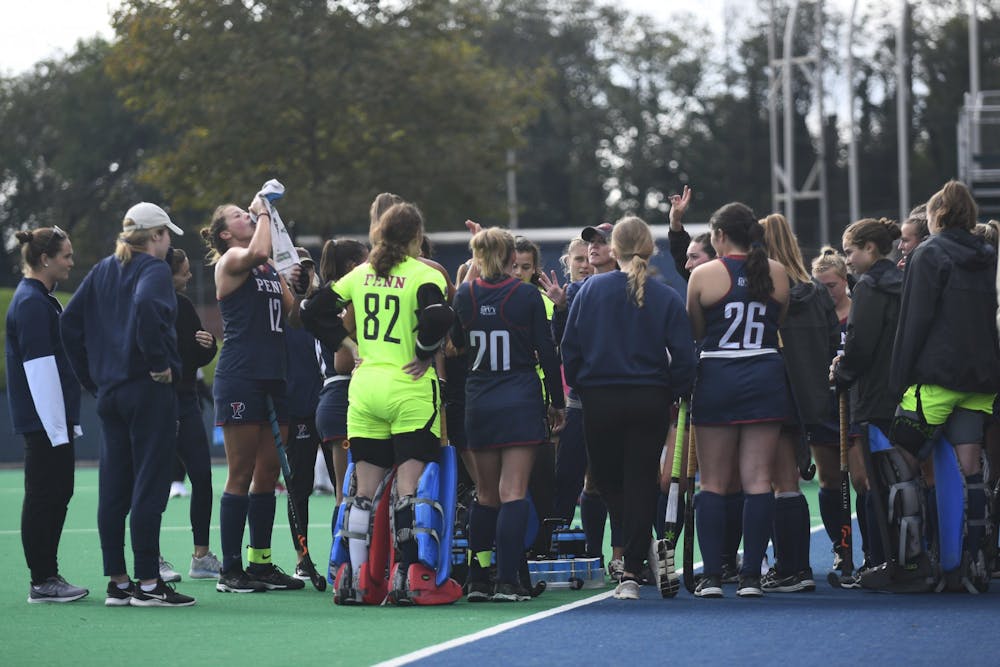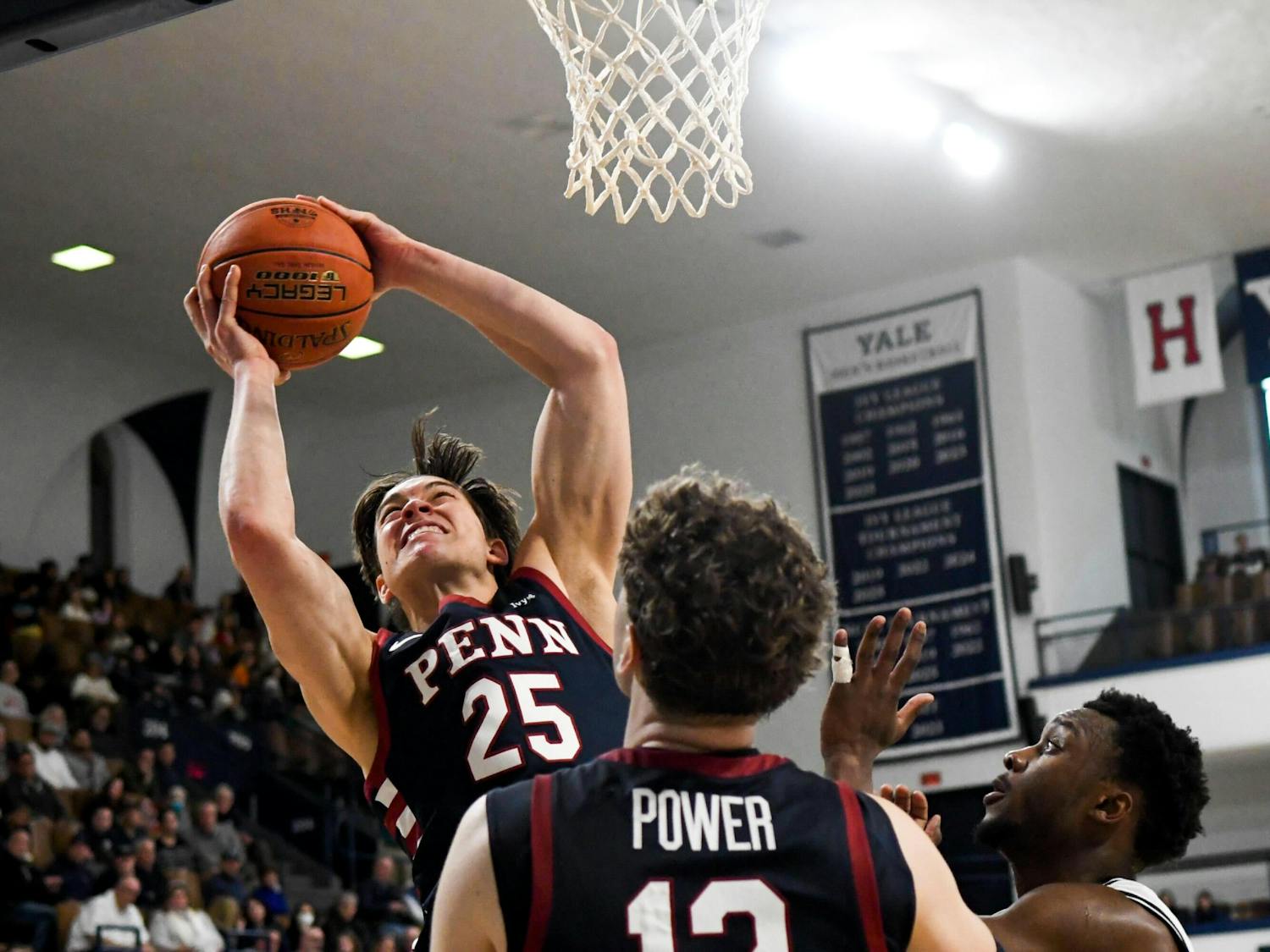For many schools, the end of the regular season is just the beginning.
At the end of a slate of non-conference games and hard-fought conference matchups lies the reward for months of tireless work: a shot at a conference championship. Winning the conference is a chance at immortalized glory, a chance for a team to cement itself in conference lore and history.
But for some fall sports in the Ivy League, the end of the regular season is just that: the end.
Instead of preparing for a conference championship game or a conference tournament, these teams head into their offseason to prepare for the next year. The champion is the team with the best record at the end of the season, the one that managed to get out of conference play with the fewest schedule slip-ups.
Awarding a regular-season conference champion is not a faulted practice. In fact, it has been embraced by conferences, even in sports where the conference tournament reigns supreme. Take basketball for example.
In many cases, the only chance an Ivy League program has at the NCAA Tournament is by winning the Ivy League Tournament. There is still a regular season champion, and that title carries weight. But the path to the tournament lies in the conference tournament, a place where an invitation must be earned and where anything can happen.
When a conference tournament is in place, the playing field stays larger for longer. Teams that lost one or two fluke games early in conference play can right the ship and earn a tournament berth. Young teams, for whom early games serve as valuable reps for underclassmen, have a chance to build confidence and grow into their full potential. And even super teams that finish the regular season with only one loss, or none, to their name are rewarded with a bye that puts them one step closer to their goal.
Without a conference tournament in place, the field of contention starts shrinking early, and in less than a handful of games, a team’s hopes can be fully dashed.
RELATED:
Penn field hockey celebrates Senior Day and season-closer with win over Dartmouth
DP Sports Player of the Week: Penn field hockey senior Gracyn Banks
“Say you are one of those teams and you’ve lost three of your first Ivy League games,” Penn field hockey coach Colleen Fink said. “How do you continue to motivate your team, and how do you continue to provide an exceptional experience for those athletes when they know they have no shot?”
On Nov. 5, while field hockey teams across the country were taking the field to compete in conference tournaments, Fink tweeted about how much her and her staff struggle watching others knowing that their own players don’t have the same chance. Fink, whose Quakers team finished in third place in the Ivy League, believes that a conference tournament would get everyone more involved.
“Even if you’re fighting for fourth place, just to get into the playoff, now those games become more meaningful,” Fink said. “Because you can frame the rest of your season to be the best of the rest.”
Fink’s Penn team came up short in its quest for the Ivy League title. Harvard, who finished 17-1, (7-0 Ivy) claimed the Ivy League conference crown. But with a four-team conference tournament, Fink’s team, as well as Harvard, Princeton, and Yale, would have had the chance to battle it out on the field.
Penn also boasted a younger team than usual this season. In addition to upperclassmen that missed out on a year of competitive experience due to the pandemic, the team featured underclassmen playing their first collegiate field hockey. One of Penn’s most prominent players, Sabien Paumen, was a sophomore goalkeeper forced to learn the position while playing in games.
Learning on the job is challenging enough. Doing so when facing a plethora of nationally-ranked top teams, as the Quakers did this season, makes it all the more difficult.
“I think that it’s hard when you play the top of your league at the start of the season,” Fink said. “We played Harvard and Princeton first, and I do think we were an inexperienced team that grew over time.”
With a conference tournament in place, growing teams have room to do just that. But when teams have to win the regular season outright, there isn’t the same opportunity for growth. That’s part of the reason Fink has been an advocate for a tournament, which she believes would benefit all involved.
“There’s a case for the top of the league, and there’s a case for the bottom of the league in any given year,” Fink said. “It definitely aligns with what Alanna [Shanahan], our new athletic director, is pushing for, which is competitive excellence and student-athlete experience.”
The support for a conference tournament is nothing new, either. Talks about introducing something in that format have been going on for years. But, like it did with everything else, the COVID-19 pandemic put a pause on any discussion on the topic.
Now Ivy League athletics are back, and support for a conference tournament is as great as it’s ever been. As a result, Fink is hopeful that both the Penn administration and the Ivy League will continue making progress on her goal of greater competitive opportunity.
“Penn and the Ivy League have been doing a lot of good work in a lot of good areas … let’s start making progress again,” Fink said. “Let’s start having these conversations that will really impact Ivy League athletes.”









